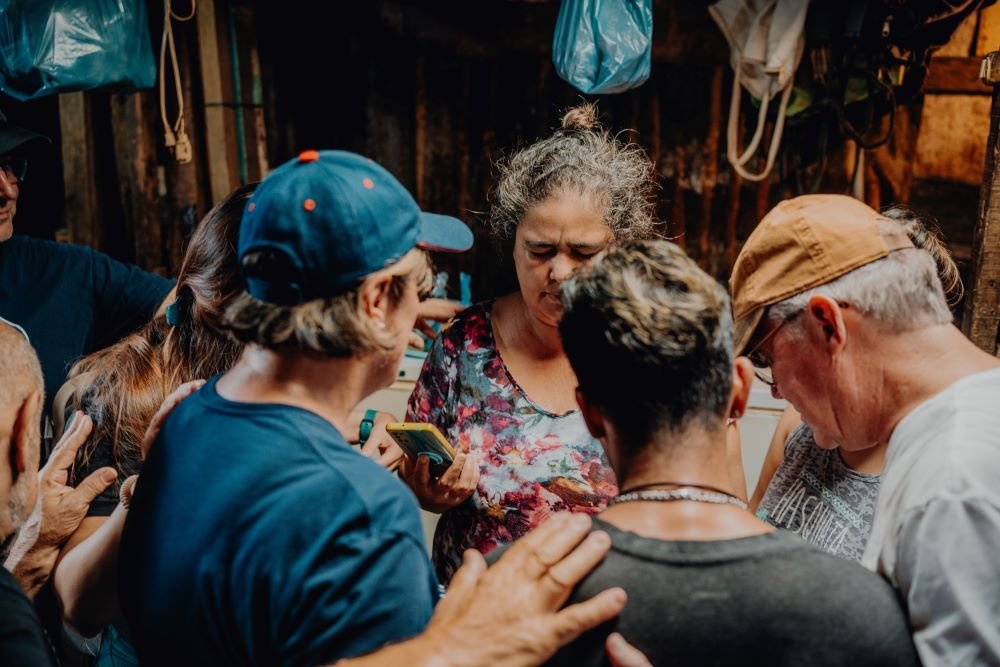Two Reasons You Should Be a Missionary
A few days ago, I described three things that should keep you from going to the mission field right now. They were all character issues, and frankly, they are very important. The damage that can be done to the missionary, the family, the team they are going to work with, and the work itself on the field is jeopardized when people go who do not possess the necessary character outlined in the pages of the New Testament. It is a big deal.
But I do not want to leave it there, because that is only half the picture.
I think it is easy for those of us who write regularly on missions, to sound like naysayers (myself included) when it comes to the task. Personally, I have seen the damage caused when ill-equipped people are sent prematurely. However, I believe it is at least as important to cast a vision for the joy that is found in following God to the ends of the earth. My time overseas as a missionary in West Africa were some of the most formative years of my life.
Of course, as I mentioned in the previous post, we need to understand the otherness of missions. We go because Christ has declared us his witnesses to the ends of the earth. His glory is our reward. It is fascinating to see how obedience shapes our hearts and produces joy.
I do not want to give the impression that these benefits are only available to those who serve overseas. You do not have to serve in a foreign country to be close to the Lord or obedient to his call. However, I do know that missionary service has some unique joys. Here are two:
1. You learn to be a learner.
Prior to going to Africa as a missionary, I thought I knew stuff. I had a college education (a graduate degree at that), and I had served in pastoral ministry for a number of years. Overall, I was a fairly competent person.
And then I got to Africa.
My first few months living in a village questioned everything I knew about competence… in a good way. Activities that were simple enough a child could do them were foreign and unfamiliar. I was unable to do the simplest tasks and did not possess the skill set to do even menial chores.
As an example, the first time I went to draw water from the village well was a thoroughly embarrassing experience. It was morning, and the well sat in the very center of the village, next to the chief’s house. Drawing water seemed simple enough, I had watched people do it the day before. So, I walked over to the well, the entire village outside doing their morning chores, watching the new guy. I picked up the plastic bucket attached to the rope, held it over the hole, and dropped it down the well. When it hit the water a realization hit me. Plastic floats. The bucket was bobbing on top of the water, completely empty. Embarrassed, I drew it up and tried again. Same result.
Finally, a little girl not older than 6 walked over from one of the huts and took the bucket out of my hand. She turned it upside down and dropped it into the hole. When it hit, it turned over and scooped up the water.
Being a missionary makes you humble—at least it should.
The pattern established in those first few months in the village changed my life. I began to see these people as smart, skilled, and qualified. They were no longer poor people in need of my superior help. They were wise in many ways, just lost without the gospel. That was the moment I began to understand how to be a learner—how to discover their culture and language and how to serve.
Remarkably, that learner’s attitude made its way into my relationship with the Lord as well. I no longer approached the Lord on my terms but came to him hoping for his guidance and instruction. My time in the Word grew sweeter, and for the first time, I started to understand what it meant to “be still.”
2. You see the beauty in the diversity of the bride of Christ.
Worshipping in another language is an experience most Americans do not get. It is more than language though. It is culture. It is the music, the beat, the lyrics. It is the way they fellowship before and after the service. It is how they argue and handle conflict. And it is all very different. From culture to culture, the bride of Christ is a manifold presentation of the all-encompassing gospel. There is no culture where it does not fit, but in every culture, there is still the unmistakable identity of those people.
Culture is not a bad thing. In fact, it is a good thing gone wrong, just like the rest of creation. The churches spread out across this planet worship in a thousand ways in a thousand tongues. All of them are a precious aroma before the Lord. I spent years worshipping in a way that was first foreign to me. Eventually, it became comprehensible, then beautiful. I always missed my own cultural expressions of worship to Christ, but now, I find myself missing those small services under a grass roof. Because they are both wonderful.
“From culture to culture, the bride of Christ is a manifold presentation of the all-encompassing gospel.”
Watching the gospel being planted into a new culture, sprout, take shape in new cultural forms, and bloom into a new expression of Christ’s body is nothing less than watching a miracle. These new churches looked nothing like my church at home, but they were churches in every way. It is hard to understand Revelation 7:9 until you have witnessed something so beautiful.
Keelan Cook is the Associate Director of the Center for Great Commission Studies at Southeastern Baptist Theological Seminary and former Associate Director of UBA. His primary areas of ministry focus include urban missiology, church planting, church revitalization, and unreached people groups.










